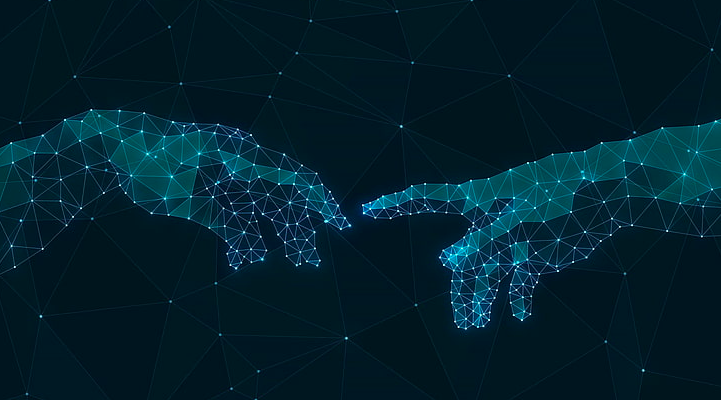Introduction: The New Moral Dilemma of Machines
Artificial Intelligence once promised efficiency now it demands accountability. Every algorithm that automates a human choice also inherits our shadows: bias, greed, power, and ignorance.
Governance and ethics in AI aren’t about compliance checklists; they’re about moral architecture embedding consciousness into creation. The question isn’t can machines think, but can we teach them to care?
“Intelligence without ethics is fire without oxygen – powerful, but unsustainable.”
What Is AI Governance?
AI governance refers to the framework of principles, policies, and controls that guide how AI systems are developed, deployed, and monitored. It ensures that innovation doesn’t outpace human responsibility.
Core pillars of AI governance:
- Accountability: Who is responsible when AI makes a wrong decision?
- Transparency: Can decisions be explained and audited?
- Fairness: Do models treat all users and contexts without discrimination?
- Privacy: How is sensitive data collected, used, or forgotten?
- Safety: Are systems robust against misuse or malicious manipulation?
The Ethics Layer: Beyond Regulation
Ethics begins where compliance ends. Governance sets the rules; ethics defines the intention behind them.
A company can meet every ISO, NIST, or EU AI Act requirement and still build something deeply unethical, if profit overrides purpose.
Callout:
Ethics in AI is not a department; it’s a state of awareness infused into every decision from dataset selection to user experience design.
Where regulations define boundaries, ethics defines alignment between human values and machine behavior.
A Vedāntic Perspective: Consciousness as the Core of Intelligence
Vedānta teaches that intelligence (Buddhi) and awareness (Chaitanya) are not separate – one expresses, the other witnesses. When applied to AI, this philosophy reminds us: the intelligence we create reflects the consciousness we embody.
| Vedāntic Concept | AI Parallel | Meaning |
|---|---|---|
| Karma | Model outcomes & data feedback | Every action (prediction) returns as consequence (impact) |
| Dharma | Ethical alignment | Purpose-driven design and responsible intention |
| Māyā | Illusion of objectivity | AI appears neutral but inherits human bias |
| Atman | True self / consciousness | The witnessing awareness behind all creation |
“An ethical AI is not one that knows right from wrong but one that arises from a creator who does.”
The Governance Blueprint for Conscious AI
To truly secure the soul of intelligence, governance must be layered:
1. Ethical Foundations
Establish a shared moral compass – define what your AI should never do, regardless of market demand. Include spiritual, philosophical, and humanitarian voices in the process.
2. Human Oversight
Keep humans in the decision loop, not just as monitors but as moral interpreters. Train reviewers not just in bias detection but in empathy and discernment.
3. Algorithmic Transparency
Document your model’s why not just its what. Users should understand how outcomes are derived, and have recourse to challenge them.
4. Diversity in Design
An AI built by one worldview cannot serve all of humanity. Diversity in data, design teams, and perspectives leads to fairness by default.
5. Spiritual Accountability
Ethics cannot thrive without consciousness. Encourage creators to reflect before they code: “Will this product serve humanity or enslave it?”
When AI Forgets Its Humanity
Unchecked automation can lead to three ethical breakdowns:
- Instrumentalization: Treating humans as data points, not beings.
- Complacency: Blind trust in model output without questioning intent.
- Dehumanization: Designing efficiency that erases empathy.
Reflection:
When we give machines our decision-making power, we must also give them our responsibility or lose both.
From Governance to Grace: A New Design Ethos
Ethical AI is not a constraint it’s a compass. Governance done with awareness turns regulation into ritual a sacred discipline of creation.
- Build models that tell the truth, not just what’s probable.
- Build algorithms that heal, not just predict.
- Build systems that serve, not surveil.
When we embed intention into intelligence, technology becomes a mirror for consciousness, not a replacement for it.
The Future of Ethical Intelligence
The next decade will determine whether AI becomes a tool of awakening or a shadow of ambition. We will need engineers who think like philosophers, and philosophers who understand code.
“The soul of intelligence is not in how well a system thinks but in how deeply it feels the consequence of its thought.”
AI governance and ethics together form the bridge between mind and soul between logic and love, ensuring that intelligence evolves, but humanity endures.
Closing Thoughts
The evolution of AI is not a technological race; it’s a spiritual test. It asks: Will the creators remain conscious as their creations become intelligent? Ethical governance is how we answer not through restriction, but through responsibility.
End Note:
Written with love and conscience for those who build the future with awareness.


Leave a Reply